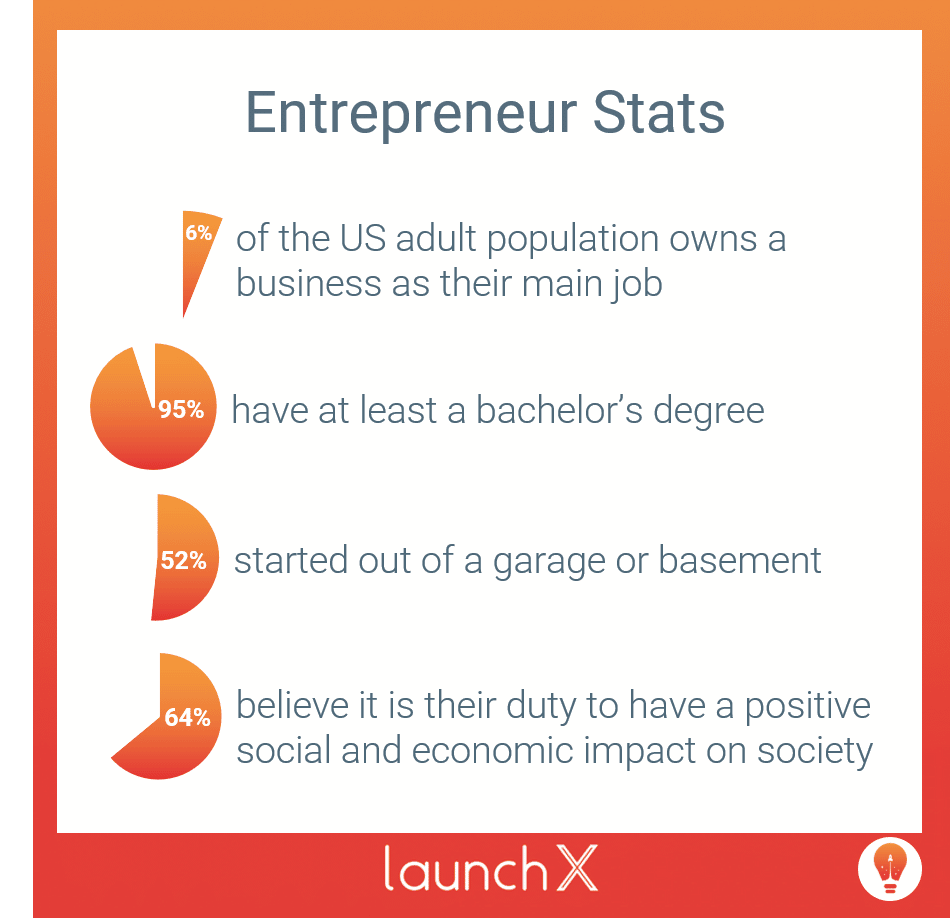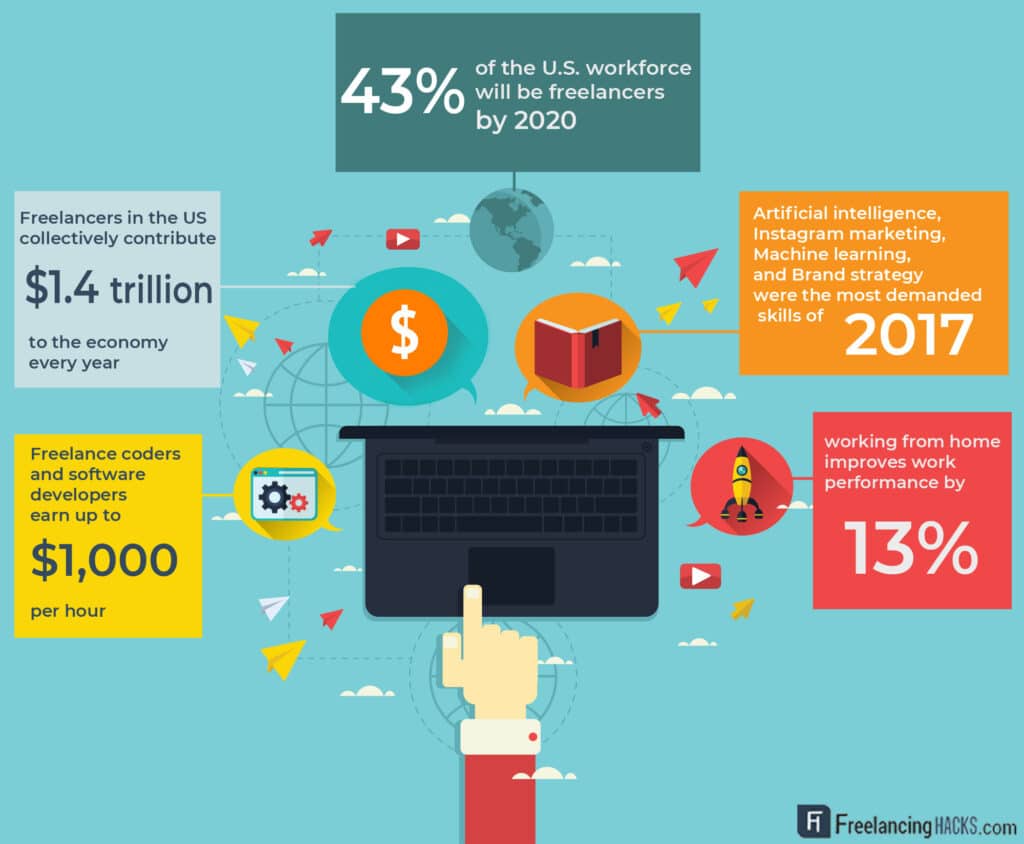This topic is something I’ve long thought about discussing, dating back to 2016. At the time, I was running my company solo full-time. I wasn’t quite at the $1M mark, but I was well on my way to making that in revenue in the next one to two years. Perhaps I should rephrase that: I was determined to make that happen.
My mantra in life has always been centered around the practice of working my ass off, staying humble, and being kind. In my short lifetime, I’ve seen how the successes of one’s career, especially when it came to making money, changed people.
Hypothetical example, a colleague — let’s name him Ken (the male version of Karen – ha!) — became more of an asshole the more money he made and then was completely unapproachable once he made his millions.
What happened? Short answer: Ken was always an asshole. As Tim Ferriss once said, “Money doesn’t change you; it reveals who you are when you no longer have to be nice.”
Entrepreneurship isn’t for everyone, but I knew early on in life that it was a path I wanted to pursue — I just didn’t have an exact timeline as to when it would happen. In today’s blog post, I’m going to highlight specifically how one-person businesses are kickin’ ass and taking names yielding $1M (and more) in revenue, and how you can too.
Before I do, let’s give a bit of background to build context and also check out these relevant stats about entrepreneurship today:
- 62% of U.S. billionaires are self-made.
- In 2016, there were 25 million Americans who were starting or already running their own business.
- The #1 reason why businesses fail is that there’s no market need.
- 60% of people who start small businesses are between the ages of 40 and 60.
- There are 582 million entrepreneurs in the world.
- 22.5% of small businesses fail within the first year.
- Studies show middle-aged men start the most successful businesses.

Storytime for those who don’t know me
For me, I’d be lying if I didn’t admit that in my 20s I was definitely chasing the money, but at the same time, I was also fortunate enough to discover my passion (digital marketing) early on. So I pursued climbing the corporate ladder within digital marketing and jumped from job to job because every job I left was for more money.
Right out of undergrad, I had set out a goal to make a six-figure income by the time I was 30. I achieved that goal at the age of 28. From there on, my goal was to push for $500K and then $1M — all before I was 40.
I started my company, Fastmarkit, more as a side hustle because I loved digital marketing so damn much I wanted to do more of it. Plus, I had spent a decent amount of time working with marketing agencies, so I was able to see the gaps that existed within them to ensure that didn’t happen when I started my own.
Once I started Fastmarkit, my goal was to eventually make it a full-time gig. I was self-aware enough to know that I wasn’t quite ready and had to run it as a side hustle first so that I could keep learning from the smart people I worked with at my full-time jobs. In other words, I didn’t rush the process. I was patient and methodical with how I approached entrepreneurship.
How Fastmarkit became a full-time venture
From 2014-1015, my business quickly grew. I was doing things that worked way better than they do now, which was leveraging LinkedIn direct messaging as a cold outreach avenue and then blogging a shit ton about digital marketing. To be fair, blogging still works amazingly well in acquiring new customers, but it definitely takes a ton more time than it used to. As for LinkedIn cold outreach messages, they don’t yield the type of results I used to see at all anymore due to the saturation of people doing the same shit.
C-level executives read my blogs and found me on LinkedIn from 2014-2015, inquiring if I could help them with their marketing initiatives. I agreed to and soon enough, Fastmarkit was on target to make $250,000 in revenue. In addition to that, the company I was working for full-time was acquired by Google, so that gave me an opportunity to really run my business full-time.
I did that and haven’t looked back.
Now, let’s talk about how one-person businesses are making $1M and more in revenue.
Put in the hard work and sacrifice
I think there’s a misconception of what “work” is. Most people hate their work because it’s a job, instead of being something that serves their personal goals to build out a career. More importantly, they aren’t doing what they truly want to be doing. It’s easier to share your dreams with someone than it is to actually execute and make them a reality, right?

One-person businesses aren’t afraid to work because they are making the needed sacrifices to build out their vision, rather than building out someone else’s dreams. I can’t tell you how many evenings and weekends I spent working rather than going out and partying.
Here are some core attributes to be aware of if you want to hit that $1M mark:
- Be disciplined with your everyday routines.
- Remain focused as hell, meaning you say no to the things that don’t drive you.
- Be accountable and responsible.
- Your desire to succeed is bigger than your excuses.
- You stop looking for the short gains with zero long-term potential.
- You’re realistic.
- You have an innate curiosity to keep learning and stay sharp.
Love what you do and do what you love
This goes back to the point I made about just chasing money and allowing that to cause your happiness to deteriorate. I realized this — as I continued making more money in my career, my happiness began to decline. Another big reason why I started running my company full-time was that I wanted to do something I loved on my own terms. This meant freedom and flexibility.
Nothing is more satisfying than knowing that you are 100% contributing to the bigger picture of the type of life you want to live. More importantly, you are taking the responsibility to make that happen and you aren’t waiting for the opportunities to come to you, but you’re creating them for yourself.
Loving what you do truly comes down to your very well-being, along with the drive and motivation to jump out of bed every morning because you’re pumped to do the work, not because you ‘have to’. When work no longer feels like work, that’s when the success (however you want to define it) and the money start to follow.
Quick Tip: Want to start your own business but you’re not sure if the demand is there? I recommend using SEMRush’s Complete Market Analysis tool to explore the competitive landscape, unwrap audience demographics, and amplify your market growth strategy. Try it for free here!
Be willing to step out of your comfort zone
What I honestly dislike the most about running a business is prospecting for new clients. It makes me cringe. I hate throwing out a free eBook or even doing cold outreach. It has always been uncomfortable for me. However, I push through it by changing my perspective on the situation, and by:
- Telling myself that if I never ask, then the answer will always be no.
- Being realistic (as mentioned above) that I won’t hear back from the majority of people I reach out to and I’ll also hear more HELL NOs than yes’s.
- Knowing that if I’m feeling uncomfortable, that’s ok; it’s a part of growth.
- Thinking that everyone I reach out to won’t be interested in working with me and that just saved me a hell of a lot of time because I don’t need to “chase” them down.
Finally, knowing that as I also focus on building out my personal brand, those who said “no” or chose not to respond to me now will feel like they missed out later. Just because they don’t know who I am now, doesn’t mean it’ll always be that way. Nothing is permanent, so you should stay fluid and resilient.
Build relationships with reliable freelancers and contractors

As I pushed for growth within my company, I recall one piece of advice that a colleague shared that was relevant to me: “Depending on what kind of business you start and grow, you can definitely push to make $2M in revenue and only have one to two people running it full-time. The rest you can outsource to reliable freelancers and contractors.”
This really stuck with me because I always thought that I would have to hire a bunch of people to help me run my company. Instead, my mentality changed because as my business grew, I started working regularly with freelancers who were starving for work and wanting to maintain their relationship with me for that work. In a way, they’re running a business too, so that was a major win/win.
Here are some stats to take note of too:
- A third of the U.S. workforce has done freelance work at some point in their career.
- 61% of freelancers went into this type of work by choice.
- In 2019, freelancing contributed $1 trillion to the US economy.
- 68% of freelancers claimed to have started working independently in the past five years.
There are a few different places that you can go to find quality freelancers. Fiverr is a great place to start — they have freelancers for everything from content writing to web design to market research. And with freelancers at every price point, you can find someone to help out that fits within your budget. Check out this link to learn more about the kinds of freelancers you can find on Fiverr.
Another good site to find freelancers is FlexJobs. FlexJobs is unique because you can find not only freelancers but also seasonal and remote workers. And again, you can find freelancers for all sorts of tasks, from accounting to data entry to graphic design. Check out all of the options they offer for employers here.
Lastly, here were the top reasons why I chose to hire out a team of freelancers and contractors to help my business grow instead of bringing it in-house with full-time employees:
- I knew my role would change. I’m passionate and love digital marketing. The more people I brought in-house, the more I knew I’d be taken away from doing what I love and handling more personnel responsibilities.
- I was able to maximize my profit margin. Most agencies land around 20%-25%, while mine has stayed steady between 62%-72%.
- I wanted the flexibility of a distributed team + lifestyle type business, which meant no office (i.e. super low operational costs), and wanted to work wherever I felt like, even if it meant hanging out at a coffee shop near the beach in San Diego.
Moving forward
Perspective does so much more than just give you the mindfulness that’s needed for the present — it actually gives you the patience needed to keep building and moving forward.
I’m human. I get stressed out and have anxiety over my growth initiatives and goals too. But what pushed me to build my business into a seven-figure agency was that I knew I had control over my own actions and thoughts, but I couldn’t really make someone else’s decision for them.
In other words, you have to let go of the idea of caring what others think about you and letting their opinions dictate your entrepreneurial moves. Do it for yourself and keep marching forward. The more you put in the work, the more you’ll win in life and in business.
Disclosure: Please note that some of the links above are affiliate links. I only recommend products and services that I use and stand behind, and if you decide to try them, I will earn a commission at no cost to you. Doing so helps me run this blog and provide free content for you, my readers.





